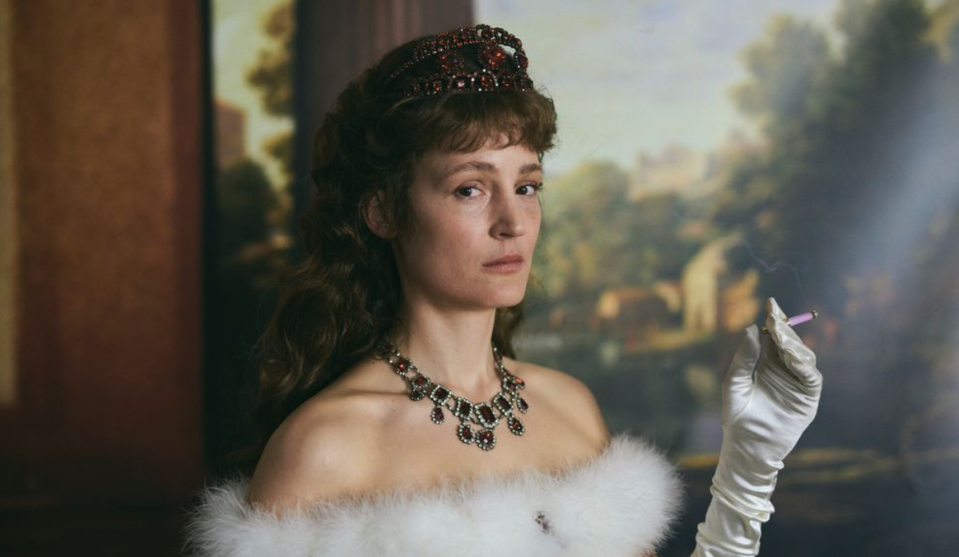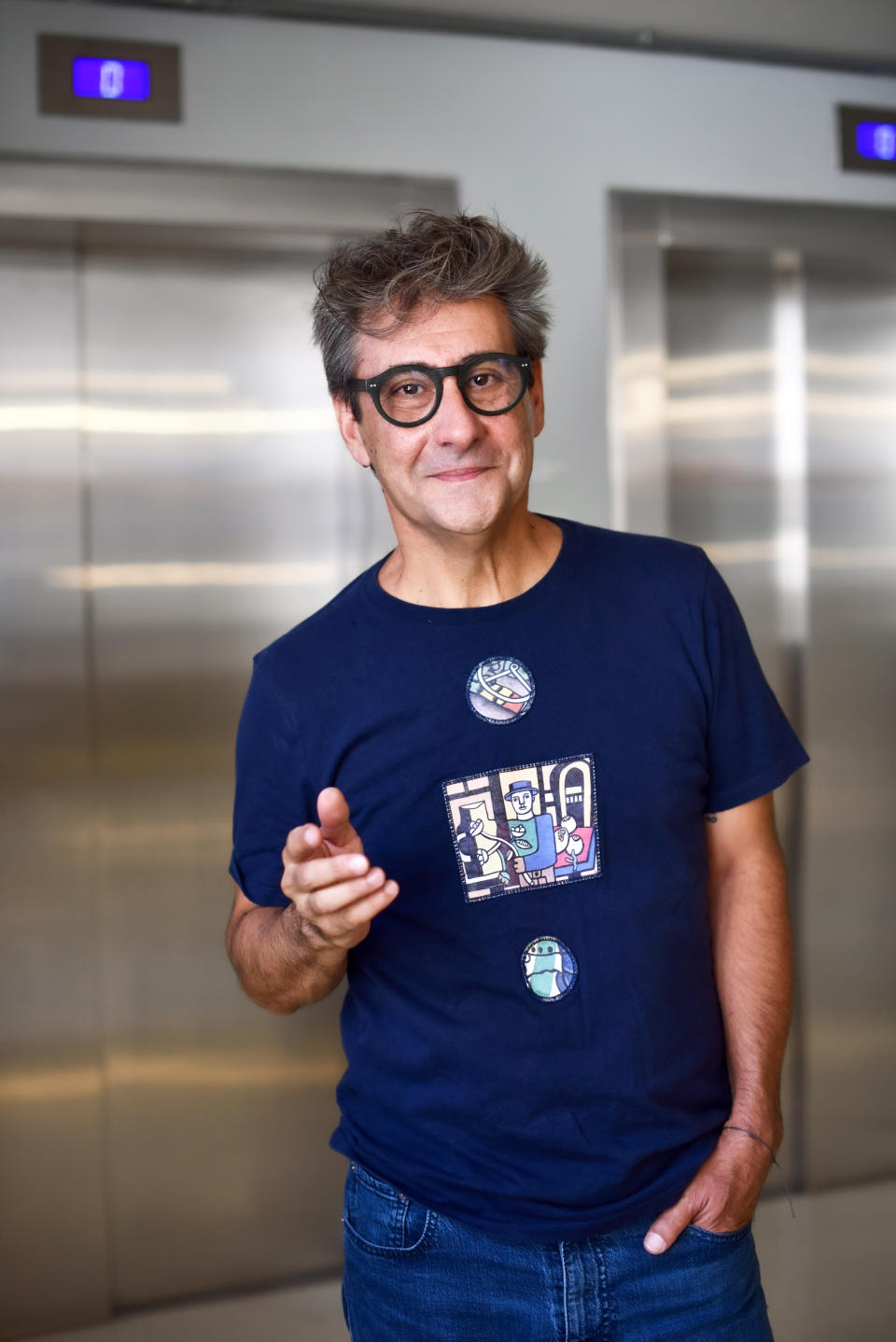Festival In Focus: Thessaloniki Aims To Reinvent The Role Of A Film Festival With Its 63rd Edition
- Oops!Something went wrong.Please try again later.

Orestis Andreadakis, director of the Thessaloniki International Film Festival, has a lot on his mind when he sits down with Deadline via Zoom from his office in Athens. Climate change, women’s rights, and the war in Ukraine are all topics he discussed, and he believes film festivals, including his own, must find a way to address and interrogate wider social issues.
“For us, it’s not only about films with big names or premieres,” Andreadakis tells Deadline. “We want to say something. We want to leave a trace in our hearts, soul, and mind.”
More from Deadline
Festival In Focus: San Sebastian Ramps Up Industry Components For 70th Edition
Festival In Focus: San Sebastian Kicks Into Gear As Spain Enjoys Industry Boom
As such, this year, Thessaloniki’s lineup is littered with socially-minded films like British filmmaker Georgia Oakley’s debut feature Blue Jean, a soulful drama about homophobia in Thatcherite Britain, and Wolf and Dog by Cláudia Varejão, an astute film about gender roles and human interactions.
Overall, 199 full-length films will screen across Thessaloniki’s various sections. The selection will be bookended by Steven Spielberg’s latest film, The Fabelmans, which will open the festival on November 3, and the November 13 closer Corsage, the buzzy Vicky Krieps-starrer from Austrian filmmaker Marie Kreutzer. A total of 11 films will feature in the festival’s Main International Competition, where they will compete for the Best Full-Length Award, which comes with a €10,000 ($10,000) cash prize. Other cash prizes include the €5,000 ($5,000) Special Jury Award and the €3,000 ($3,000) Special Jury Award for Best Director.

There are two Greek productions in the International Competition: Listen by Maria Douza and Silence 6-9 by Christos Passalis. Twenty-eight full-length Greek films screen throughout the festival, a number that Andreadakis says indicates a “very good year” for Greek filmmaking and the Greek industry. Greece is certainly having a moment as the last decade has seen the country churn out a slew of internationally recognized filmmakers best known for their deadpan, psychologically rich work, often grouped under the “Greek Weird Wave” banner.
Chief among them is Yorgos Lanthimos, whose third feature, Dogtooth, a dark and highly imaginative tale about family, tradition, and faith, is regularly cited as kicking off this wave.
“Now, at every big international festival, you can see a Greek name,” Andreadakis says.
To boot, the country has become a popular destination for ambitious international productions to set up shop thanks to the recent launch of its cash rebate and tax relief incentives last year. Crimes of the Future, David Cronenberg’s long-awaited return to body horror, for instance, was shot entirely in and around Athens. Ruben Östlund’s second Palme d’Or winner, Triangle of Sadness, was shot in Evia and Peloponnese in Southern Greece. Rian Johnson’s highly-anticipated Knives Out sequel, Glass Onion, which debuted in Toronto, was also produced in the country.
“Even now, Matt Dillon is shooting in Greece with Fernando Trueba. This is great for the economy and industry because many people work on these productions,” Andreadakis says.
The Trueba project Andreadakis mentions is romantic thriller Haunted Heart, which is currently shooting on Mount Pelion in central Greece.
This year, the festival — which celebrates its 63rd edition — will again hold in-person screenings across the Port of Thessaloniki alongside an online program hosted on a designated digital platform. The hybrid viewing experience was first introduced during the pandemic and will likely remain a key fixture as the general decline in physical movie-going continues alongside long-term shifts in audience habits.
“In Greece, the movie theatres aren’t doing so well,” Andreadakis says. “The big question is, what is the role of the festival? We are trying to answer that question this year.”

One way the festival will attempt to explore this question is through the work of one of Greece’s most acclaimed artists, the late filmmaker Theo Angelopoulos. He will be the subject of two large-scale visual art exhibitions at the festival to mark the tenth anniversary of his sudden death. The first exhibition, titled Anaparastasi: Reconstruction, Reenactment, Reconstitution, sees twelve Greek and international visual artists explore the lengths of cinematic form through the lens of Angelopoulos’ New Greek Cinema classic Reconstruction. The Momus-Experimental Center for the Arts in Thessaloniki will host the exhibition until November 27th, at which point it will move to The Project Gallery in Athens, where it will be on show from December 20 – January 28th.
The second, titled The ‘Sea’ in the Port, will showcase photos taken by Greek artist Nikos Nikolopoulos on the set of The Other Sea, the third film in a trilogy on modern Greece that Angelopoulos was shooting in 2012 when he was knocked down by a motorcyclist and killed. The Other Sea had been in production for 20 days before Angelopoulos’s death, with Toni Servillo (The Great Beauty) cast in a leading role. The film remains unfinished.
“The thing about Angelopoulos is that his movies are very modern because they touch on the fundamental issues of human nature, and every generation can see and restudy his movies and discover secrets,” Andreadakis says of Angelopoulos’s legacy.
Reconstruction will also screen during the festival as part of the tribute.
On the industry side, Thessaloniki will launch its new Agora TV Series section on November 10 with a collection of masterclasses and discussions dedicated to exploring the relationship between cinema and television.
“Cinema and TV series are not enemies,” says Andreadakis. “We need to integrate this topic into our festival.”
The festival’s Crossroads Co-production Forum, a showcase of projects in development from Southeastern Europe, the Black Sea, and the Mediterranean region, returns alongside the Works in Progress program comprised of films from the same region.
In the way of talent, Charlotte Gainsbourg is due to attend with her new film The Passengers of the Night, and German filmmaker Fatih Akin will bring his latest film Rheingold to the festival. However, the festival’s greatest attraction, Andreadakis insists, can be found away from the big screen.
“We have the best hospitality among all the European festivals,” he says. “The weather is good because November isn’t cold in Thessaloniki, and we have one of the best cuisines in the world. So come to Thessaloniki to enjoy warm hospitality.”
The 63rd Thessaloniki International Film Festival takes place November 3-13, 2022.
Best of Deadline
Sign up for Deadline's Newsletter. For the latest news, follow us on Facebook, Twitter, and Instagram.

